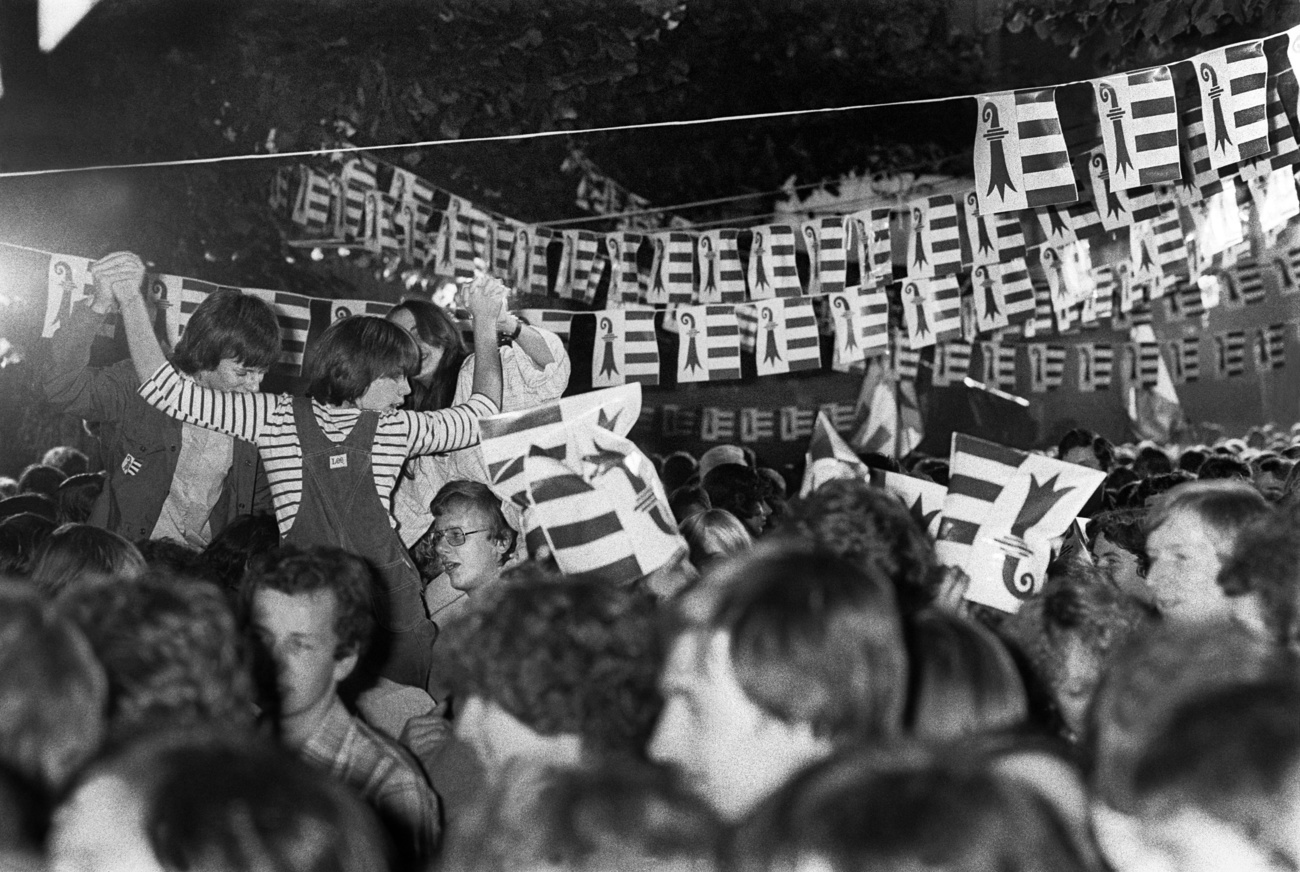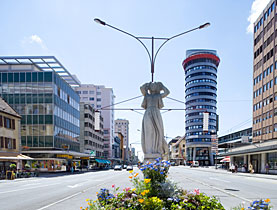Separatist Swiss canton celebrates 30 years

A generation ago a passionate political battle was fought and won by the separatists of the Swiss Jura region on the French border.
But time has softened the rebellious spirit of many of its citizens who succeeded in gaining national approval to redraw Switzerland’s political boundaries and create the country’s 26th canton.
On September 24, 1978 Swiss voters paved the way for the creation of canton Jura, finally giving recognition to the region that had long seen itself as unfairly subsumed into the larger and more powerful canton of Bern.
In the intervening years Jura has carved out a place for itself as an autonomous member of the Swiss Confederation. But the attachment to a separate identity remains.
Jura had a rough start to cantonal autonomy when the watch industry crisis hit in 1979. Watch making companies were among the canton’s largest employers, especially around the town of Delémont.
“Things began very badly for canton Jura,” journalist and long-time Jura commentator Fabrice Moeckli told swissinfo.
“But today the young people are well educated and we are seeing the benefits of this. The largest and best watch manufacturers are returning to Jura because they know the canton has the know-how to produce good watches,” Moeckli said.
For Adrian Vatter, professor at Zurich University’s Institute of Political Science, canton Jura is well bedded into the Swiss system despite the difficult transfer of power 30 years ago.
Unfinished business
But many locals in the Jura region feel there is unfinished business with Bern and still hope to increase the territory of the canton by convincing the three districts of the Bernese Jura to join.
Today’s canton consists of four of the Jura’s seven original districts. The post-war breakaway movement was opposed by many in the southern Jura, who were Protestants, like the German-speaking Bernese.
The people of the Bernese Jura had trouble identifying with the strongly Roman Catholic northern compatriots, despite their common language, and opted to stay with Bern.
Vatter believes there is not currently enough support for expansion on either side. “In my opinion the political pressure from the side of canton Jura is too slight to bring about territorial change.”
“The fear still exists there [in the Bernese Jura] that the region would simply be annexed and lose its identity,” Moeckli explained.
However a special gesture could make a difference to public opinion, he suggests. “The canton could say that the capital of a united Jura would be Moutier [in canton Bern] instead of Delémont. That would be a concession to the Bernese Jura.”
Peaceful dissent
Jura voters have a history of bucking national trends on contentious issues such as foreigners’ rights and European Union membership.
Moeckli is not convinced that the votes are purely a reflection of the people’s beliefs. Rather, he sees an element of reaction against mainstream Switzerland.
“One can’t say that Jura voters are more progressive,” he said. “Sometimes they are just prepared to take the risk to vote differently.” He points out that it is easy to say yes when you know the rest of Switzerland will say no.
Despite some minor incidents, such as the destruction of a fountain in the Swiss capital, Bern, the separatist movement in the Jura region in the 1970s did not resort to serious violence. This was largely thanks to the merits of direct democracy, according to Vatter.
“At each stage of the process, popular votes were called. Up to the end every individual commune could decide where they wanted to belong.”
“This combination of federalism and direct democracy contributed greatly to the easing of the conflict.”
swissinfo, based on an article in German by Etienne Strebel
The Jura region became part of canton Bern in 1815 as Europe’s major powers reshaped the political map of Europe following the downfall of Napoleon.
Mainly French-speaking and Catholic, its residents were a minority in the German-speaking and Protestant canton of Bern.
Matters came to a head more than a century later in the late 1940s, as Jura residents began to criticise the authorities in Bern for ignoring the region and its population.
Efforts to defuse tensions failed and led to the launch of several separatist groups, some of which resorted to token violence in a bid to win autonomy for the region.
After a series of polls, canton Jura was finally established in 1979 as the 26th canton of Switzerland following a nationwide vote in September 1978.

In compliance with the JTI standards
More: SWI swissinfo.ch certified by the Journalism Trust Initiative


You can find an overview of ongoing debates with our journalists here. Please join us!
If you want to start a conversation about a topic raised in this article or want to report factual errors, email us at english@swissinfo.ch.